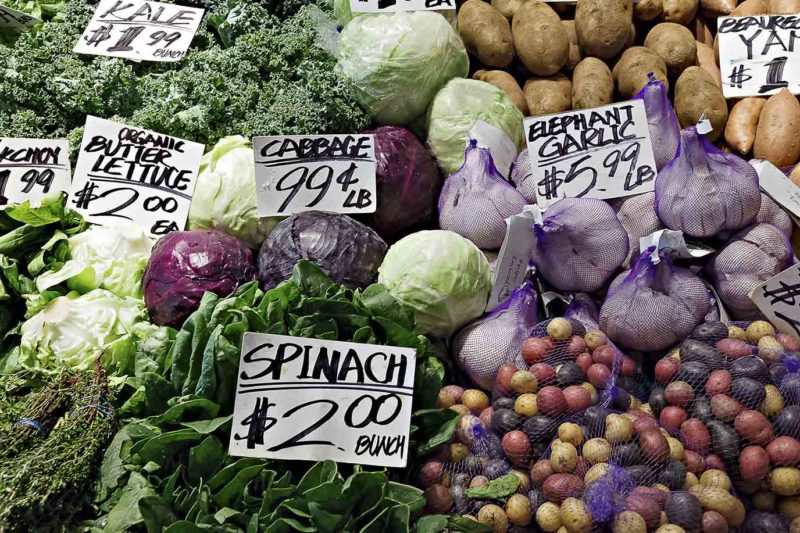Food Facts
Plant-Based on a Budget
There are infinite benefits to eating a plant-based diet which is not high in processed foods. Some of the advantages of this nutrient dense, low calorie diet are better skin, lowered risks of certain cancers and heart disease, relief from autoimmune diseases, positive ethical practices, and lastly, decreased intake of food additives like glutamate, carrageenan and various food dies. While some believe that a plant-based diet is out of the question because it is “too expensive”, this is a common misconception. Eating fruits and vegetables does not cost more than eating beef, pork and seafood. We have to remember that it is the poorer populations of the planet that generally consume more rice, beans, bananas, potatoes, yams, apples and other plant-based foods. Healthy eating does not have to be expensive at all. Grocery bills can be cut down drastically when converting to a plant-based diet.
The most important part of eating a plant-based diet on a budget is planning. Meal planning helps keep spending low because you are only buying the necessities. You will want to plan meals for 3-4 days since we are dealing with fresh foods with a short shelf life. The amount of food you buy will depend on how many meals you want to make. If you are a big breakfast and dinner person, 2 large meals a day with a few snacks will suffice. If you prefer 6 smaller meals a day, you will need to factor those portions in as well. You can also plan meals that share ingredients, to get the most bang for your buck. For example, oats can be used in the morning for a yummy banana and peanut butter oatmeal, or as a snack for healthy oat and nut cookies. Potatoes can prepared in so many different ways and eaten at any time of the day. Finding versatile ingredients can help you save where it really counts!
 Next, make a list of all of the food you need to buy based off of your meal plan. Some affordable vegan foods include rice, beans, lentils, seasonal fruits and veggies, frozen vegetables, pasta, potatoes, bananas, nut butters, and oats. Seasonal produce are generally more nutrient packed and cheaper as well. Finding fruits and veggies that are in season might take some research, but it will be worth it. Buying produce from farmer’s markets or local stands can also be more cost effective than at the supermarket.
Next, make a list of all of the food you need to buy based off of your meal plan. Some affordable vegan foods include rice, beans, lentils, seasonal fruits and veggies, frozen vegetables, pasta, potatoes, bananas, nut butters, and oats. Seasonal produce are generally more nutrient packed and cheaper as well. Finding fruits and veggies that are in season might take some research, but it will be worth it. Buying produce from farmer’s markets or local stands can also be more cost effective than at the supermarket.
Lastly, location, location, location. Price comparing, coupons, locality, and bulk buying are all things to take into consideration when choosing where to purchase your foods. You want to find the stores with the best prices, even if it means splitting your shopping into two… it will be worth it! Use the internet, or even visit a few stores, to find which ones suit your fancy and allow you to shop with ease. This chart from Cooking Matters can help you figure out which fruits and vegetables are in season (which means better prices!). Some stores will have organic produce cheaper than others, so keeping your eye out for deals will do wonders. Don’t forget, if your produce is ripening faster than you can consume it, chop it up and store it in the freezer for up to a year!

